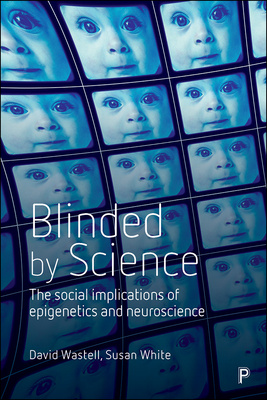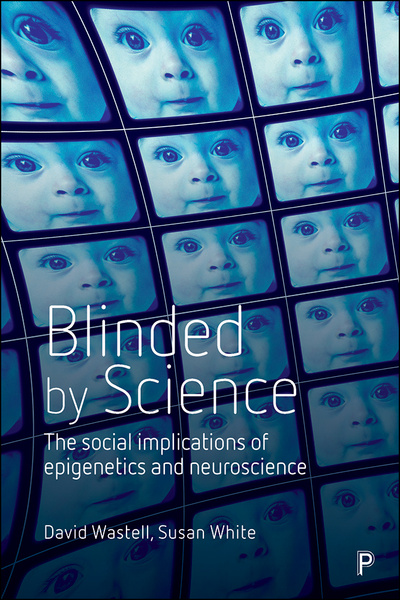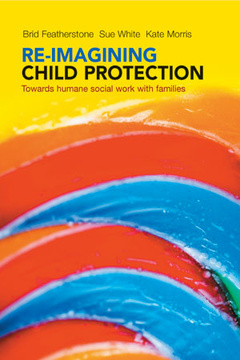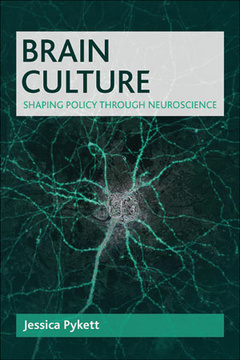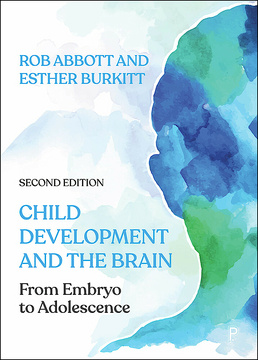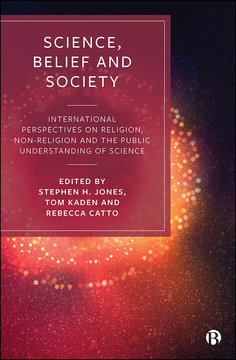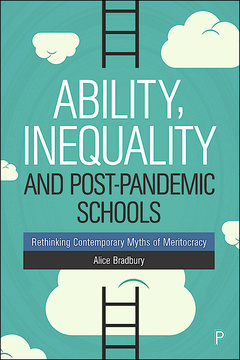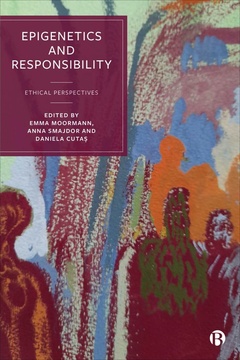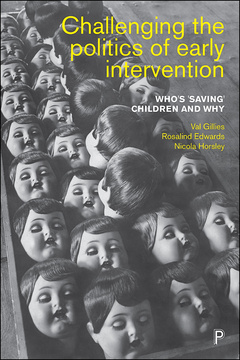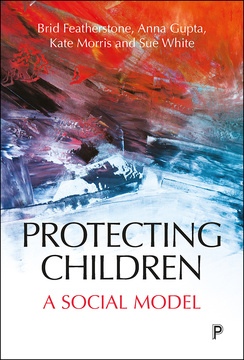Blinded by Science
The Social Implications of Epigenetics and Neuroscience
By David Wastell and Susan White
Published
Mar 15, 2017Page count
304 pagesISBN
978-1447322344Dimensions
234 x 156 mmImprint
Policy PressPublished
Mar 15, 2017Page count
304 pagesISBN
978-1447322337Dimensions
234 x 156 mmImprint
Policy PressPublished
Mar 15, 2017Page count
304 pagesISBN
978-1447322375Imprint
Policy PressPublished
Mar 15, 2017Page count
304 pagesISBN
978-1447322382Imprint
Policy PressIn recent years, new areas of biology, especially epigenetics and neuroscience, have enthralled the public imagination. They have been used as powerful arguments for developing social policy in a particular direction, from early intervention in the lives of disadvantaged children to seeking 'biomarkers' as identifiers of criminality.
This timely book, written by leading commentators, critically examines the capabilities and limitations of these biotechnologies, exploring their implications for policy and practice.
The book will enable social scientists, policy makers, practitioners and interested general readers to understand how the new biologies of epigenetics and neuroscience have increasingly influenced the fields of family policy, mental health, child development and criminal justice.
The book will facilitate much needed debate about what makes a good society and how best to build one. It also draws attention to the ways that the uncertainties of the original science are lost in their translation into the everyday world of practice and policy.
"The information and challenges this book presents should be viewed as a timely warning to those who wish to rush to judgement about findings from science that few have examined as carefully and critically as these authors. We are in debt to them." Children Australia
"Part of the appeal of the book is the unique constellation of expertise and interests that the authors bring to their topic—it is not often you get a neuroscientist and a sociologist
working together on a detailed synthesis of their respective fields." The British Journal of Social Work
"this book provides a wealth of information and helpful analysis...I would strongly recommend that readers buy this book and share with colleagues." Aotearoa New Zealand Social Work
“Well-written, highly informative and amply referenced, this is an important book to read and return to, for teachers, students and practitioners.” Professional Social Work Magazine.
"Too often early childhood policy is founded on dogmatic interpretations of over-simplified science. Skepticism is the antidote, which this remarkable piece of scholarship provides, bringing ethical concerns to the fore." John Bruer, President Emeritus, James S. McDonnell Foundation
"Forensically detailed, compelling and at points unsettling, this book is a very welcome antidote to simplistic policy appropriations of biology. It deserves to be widely read." Val Gillies, Professor of Social Policy and Criminology, University of Westminster
David Wastell began his career as a cognitive neuroscientist at Durham University before moving to the Medical School at Manchester, where his interests in technology led him to specialize in Information Systems. He is now Emeritus Professor of Information Systems at Nottingham University.
Sue White is Professor of Social Work at the University of Sheffield. She is a registered social worker with an academic background in sociology and has spent the last two decades researching how professionals use knowledge in their everyday reasoning.
Neuro-bio-social policy;
PART I: GETTING TO GRIPS WITH THE THOUGHT STYLES;
Biology and the drive for social improvement;
Understanding how brain science is created and interpreted;
Blaming the Brain;
PART II: FIXING REAL PEOPLE;
The Cat is Out of the Bag - From early intervention to child protection;
Perfecting People: The Inexorable Rise of Prevention Science;
Epigenetics - from rat mum to my mum?;
Human Epigenetics Prematurely Born(e)?;
Are We Broken? Fixing People (or Society) in the 21st Century.







